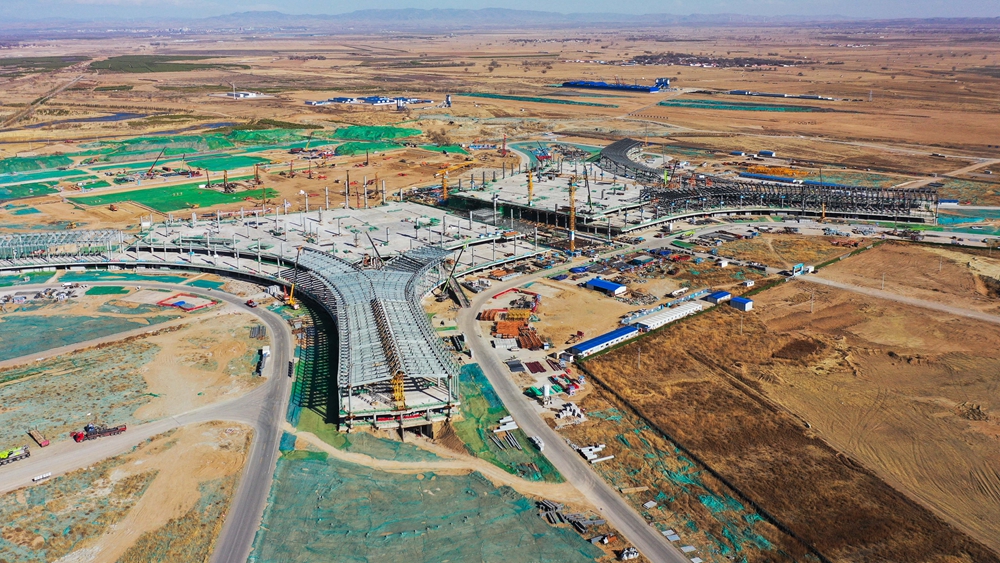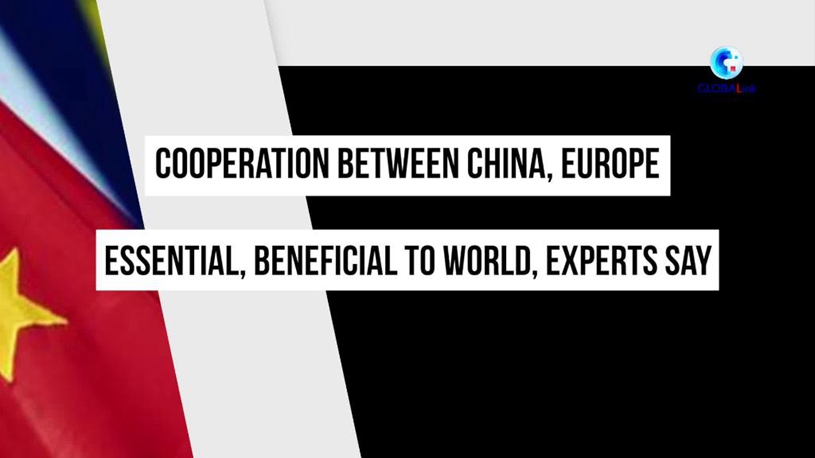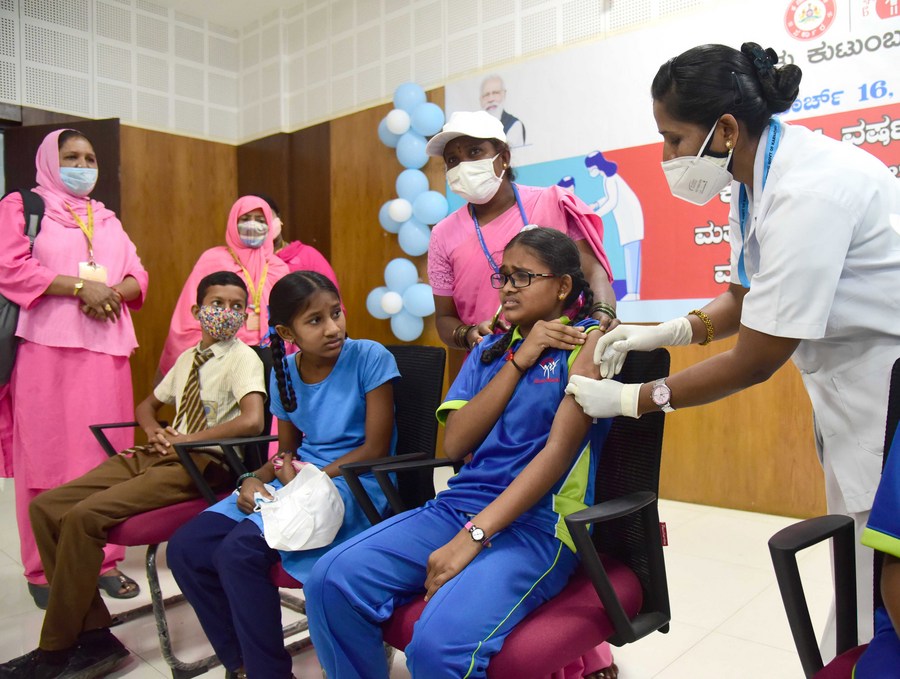
A medical worker administers a dose of COVID-19 vaccine to a girl in Bangalore, India, March 16, 2022. (Str/Xinhua)
"A future in which we are to respond to the next Disease X with new vaccines, therapeutics, and diagnostics in just 100 days is possible - but it will take vision, political will, and commensurate financial investments from governments around the world," said Richard Hatchett, CEO of CEPI.
WASHINGTON, April 5 (Xinhua) -- The International Monetary Fund (IMF) and three other global organizations on Tuesday urged the allocation of 15 billion U.S. dollars in grants this year to fight pandemics and strengthen health systems both domestically and overseas.
The IMF, in partnership with the Coalition for Epidemic Preparedness Innovations (CEPI), the Global Fund, and Wellcome Trust, published "A Global Strategy to Manage the Long-term Risks of COVID-19" working paper, which calls for a more "comprehensive" and "integrated" pandemic response from the international community.
"It is now evident that COVID-19 will be with us for the long term, and there are very different scenarios for how it could evolve, from a mild endemic scenario to a dangerous variant scenario," the working paper noted.
"This realization calls for a new strategy that manages both the uncertainty and the long-term risks of COVID-19," it continued.
"Overall, health security is economic security," said IMF's First Deputy Managing Director Gita Gopinath, who previously served as the Fund's chief economist. "The international community should recognize that its pandemic financing addresses a systemic risk to the global economy."
Gopinath noted that the IMF's January World Economic Outlook Update estimated the cumulative losses from the pandemic to reach 13.8 trillion dollars from 2020 to 2024. "The cost of inaction - for all of us - is very high. We need to act - now," she said.
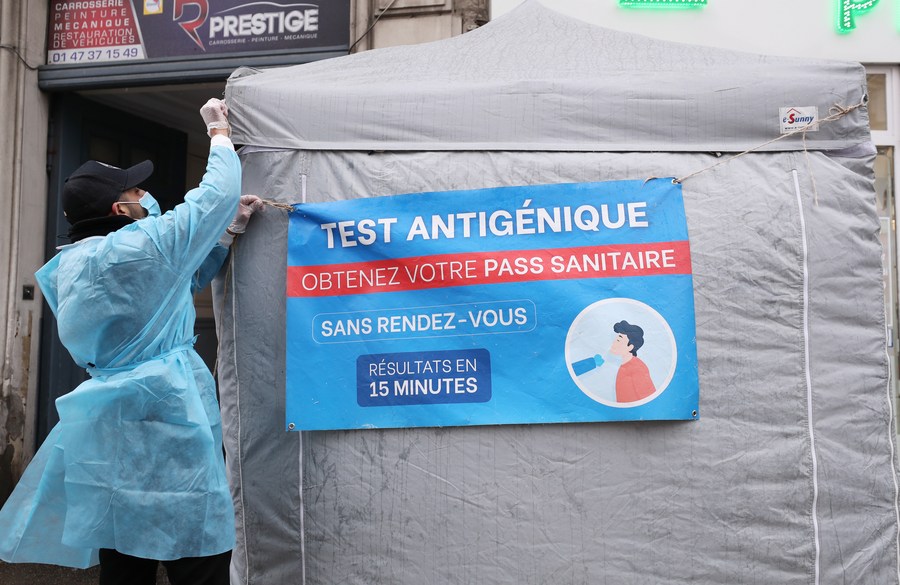
A medical staff member adjusts a sign in the wind at a fast COVID-19 test screening tent in Paris, France, April 1, 2022. (Xinhua/Gao Jing)
Echoing her remarks, Jeremy Farrar, director of Wellcome Trust and a renowned medical researcher, said "now is not the time to ease up," noting that the virus' next move is "anything but certain" and the risk of new variants remains high.
"We need to set our sights on developing next generation vaccines that can block transmission and won't require endless boosters, strengthening genomic surveillance globally so we can identify and track new variants and improving global access to vaccines, treatments and tests," Farrar said. "Leaving any countries unprotected puts us all at risk."
The newly released working paper laid out four policy implications: achieve equitable access beyond vaccines to encompass a comprehensive toolkit; monitor the evolving virus and dynamically upgrade the toolkit; transition from the acute response to a sustainable strategy toward COVID-19, balanced and integrated with other health and social priorities; adopt a unified risk-mitigation approach to future infectious disease threats beyond COVID-19.
Accordingly, the international community should allocate additional funding to fight pandemics and strengthen health systems both domestically and overseas, the paper argued. This will require about 15 billion dollars in grants this year and 10 billion dollars annually after that.
"This price tag is substantial, but failure to invest now - and build on the gains made in the response to COVID-19 - will result in human and economic costs that will reverberate for generations," said Richard Hatchett, CEO of CEPI.
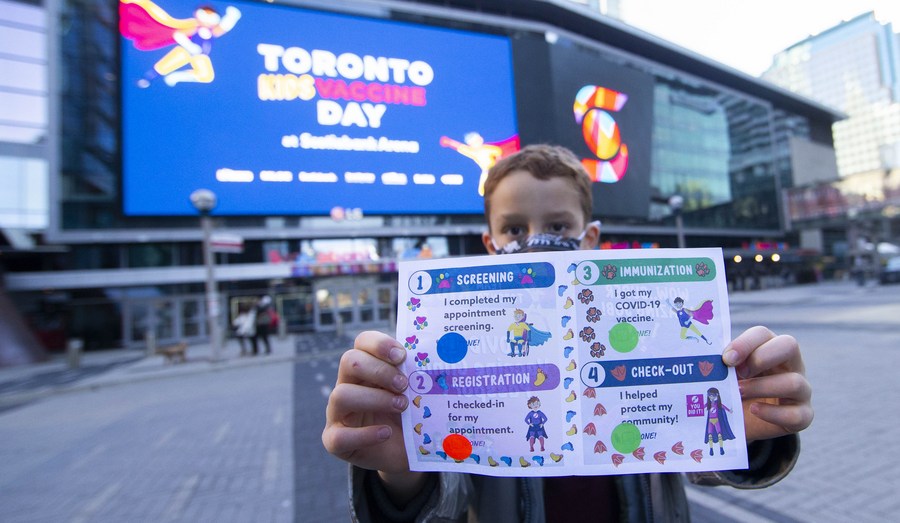
A boy wearing a face mask poses for photos with a COVID-19 vaccination "passport" after being vaccinated outside a vaccination site in Toronto, Canada, on Dec. 12, 2021. (Photo by Zou Zheng/Xinhua)
"A future in which we are to respond to the next Disease X with new vaccines, therapeutics, and diagnostics in just 100 days is possible - but it will take vision, political will, and commensurate financial investments from governments around the world," Hatchett said.
Peter Sands, executive director of Global Fund, believed that the next phase of the fight against COVID-19 will be different. "We are in for a long fight against a virus that continues to evolve. So we must shift to a more sustainable response that recognizes the linkages between responding to COVID-19, tackling the earlier pandemics of HIV, TB (Tuberculosis) and malaria, and preparing for future pandemic threats," he said.
The working paper also showed that one of the dangerous legacies of the COVID-19 pandemic, exacerbated by the consequences of Russia-Ukraine war, is weakened capacity in developing countries to invest in their people (including in health) combined with lower appetite for grant support for development as countries prioritize their economies.
"This means the fundamental problem of weak health systems in developing countries and under-investment in global health threats will remain - unless securing resilience is recognized as a common goal and its financing is taken up as a global priority," according to the paper. ■





